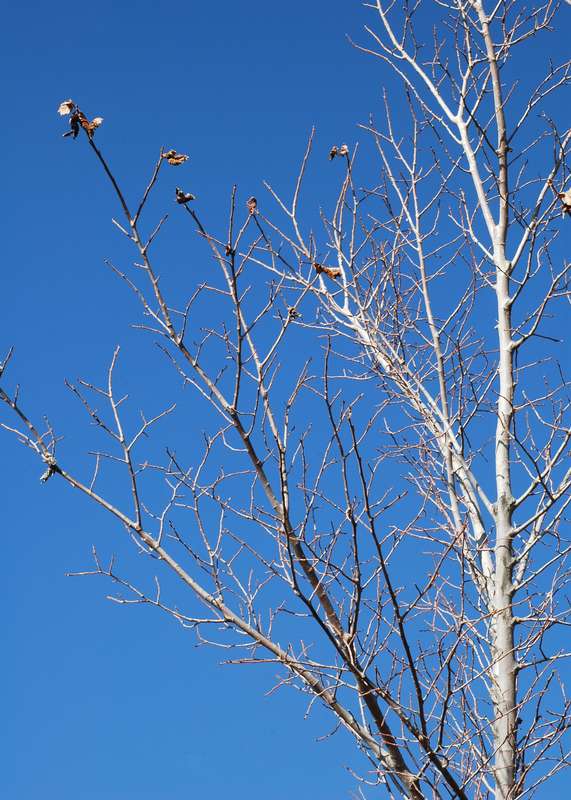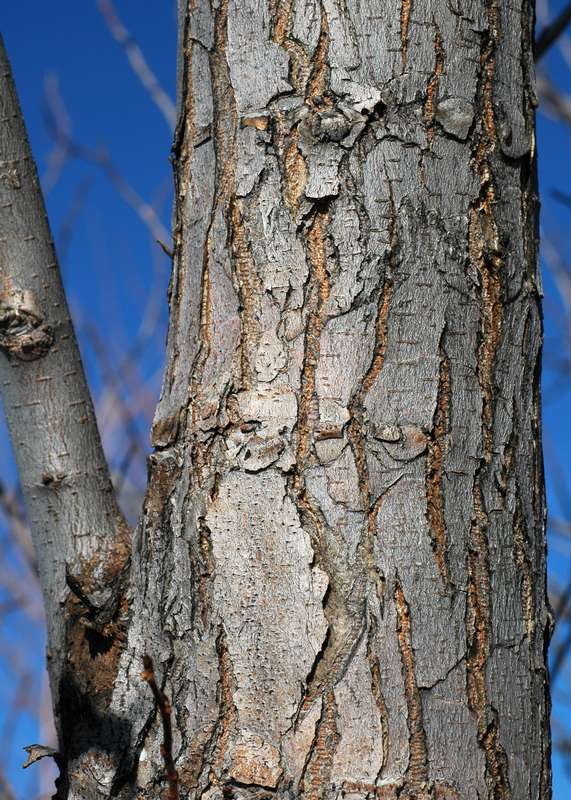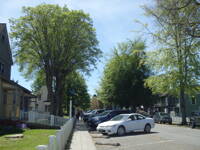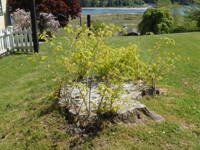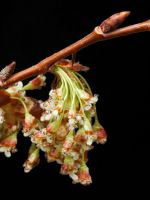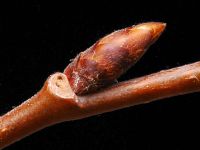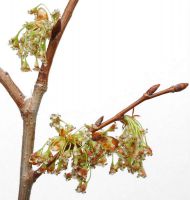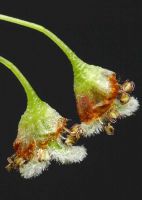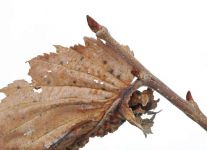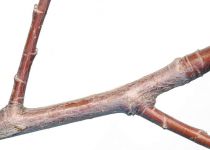Distribution: Occurring on both sides of the Cascades crest in Washington; native to eastern and central North America, though escaped from cultivation elsewhere.
Habitat: Woodlands, pastures, old fields at low to moderate elevations.
Flowers: February-April
Origin: Introduced
Growth Duration: Perennial
Conservation Status: Not of concern
Pollination: Wind
Trees 21-35 m. tall, the crowns spreading, commonly vase-shaped; branches pendulous, the old-growth branches smooth; wood soft. Bark light brown to gray, deeply fissured; twigs brown, glabrous to pubescent.
Leaves glabrous to pubescent, with a petiole about 5 mm. long; blades oval to oblong-ovate, 7-14 cm. long and 3-7 cm. wide, the base oblique, the margins doubly serrate, the tip pointed.
Flowers on branches of previous season, appearing before leaves; flowers in bundles up to 2.5 cm. in diameter, drooping, on pedicles 1-2 cm. long; calyx with 7-9 shallow lobes; petals none; stamens 7-9, the anthers red; stigmas white, deeply divided.
Samaras ovate, 1 cm. long, narrowly winged, creamy-yellow, sometimes tinged with reddish-purple.
Publication: Sp. Pl. 1: 226. 1753. 1753.
Ulmus americana L. var. floridana (Chapm.) Little
Ulmus floridana Chapm.
PNW Herbaria: Specimen records of Ulmus americana in the Consortium of Pacific Northwest Herbaria database
WA Flora Checklist: Ulmus americana checklist entry
OregonFlora: Ulmus americana information
E-Flora BC: Ulmus americana atlas page
CalPhotos: Ulmus americana photos

